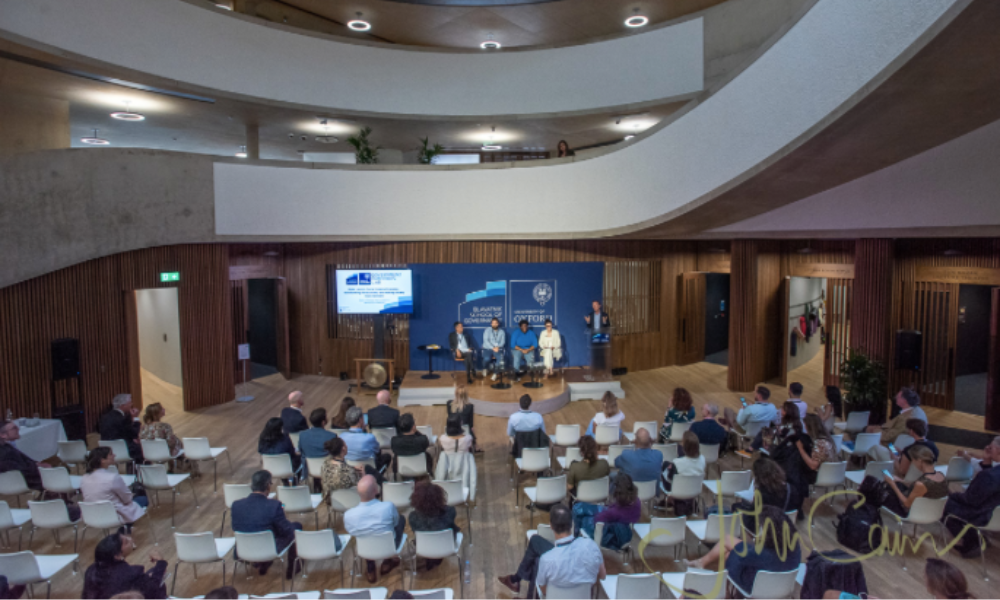In Chile, there are more than 900 schools providing technical and vocational education, educating around 35% of the country’s third and fourth-year high school students. Despite the majority of these students coming from lower-income deciles, only 4.8% of them are aware of the requirements to access Free Higher Education, a state benefit designed specifically for them.
This data was one of the outcomes of “Aspiraciones sobre el Futuro 2022” by Fundación Luksic, an initiative aimed at contributing to more technical and vocational high school students continuing their higher education by providing them with key information about the admission process and available financing and scholarships.
“The access to information is one of the main barriers I saw among my classmates. Many of them thought, ‘Why should I take the test if I don’t have money to study?’ without knowing that there were financing options. Or, on the other hand, they thought, ‘I better start working right away to earn money,’ without considering that higher education would help them have higher future incomes,” says Denisse Reyes, who is part of the program that has benefited more than 100,000 students.
The information gap addressed by “Aspiraciones sobre el Futuro” speaks to a broader challenge in the development of public policies: How to ensure that solutions reach those who need them, and how can we close information gaps to prevent the perpetuation of inequality?
The last mile: bringing public policy closer to the end-user
The term “last mile” generally refers to the final part of the delivery process of a purchase or order to its end-user. In public policies, this term refers to the implementation of social programs, i.e., when the solution reaches the user. It’s a stage as crucial as diagnosis and design but not always executed correctly.
“There is evidence, both in Chile and around the world, that public policies often focus their efforts on being impeccably designed, neglecting their execution and local implementation. If we don’t pay attention to what happens in that part of the journey, it is entirely possible that a solution loses its power for social transformation and problem-solving for which it was created,” explained Macarena Cea, Director of Evaluation and Development at Fundación Luksic.
In this regard, Macarena explains that a fundamental element for the proper implementation of public policies is interaction with the user. “The existing information gaps between those who design and implement social programs and the reality experienced by the people who access them constitute a space for the continuity or reproduction of inequalities. There is solid evidence on the importance of user participation in the diagnosis, design, and implementation of public policies,” she emphasized.
Social Outcomes Conference 2023
Through its Education division, Fundación Luksic has developed two programs aimed at closing information gaps, opening up opportunities that exist but are not well-known. Firstly, “Aspiraciones sobre el Futuro,” which, in its various versions, has reached 100,000 technical and vocational high school students. Secondly, through the “Redes Educativas para la Mejora de Aprendizajes (REMA),” the Foundation has focused on strengthening the role of educational institutions and teachers.
The Evaluation and Development division of the Foundation has measured the impact of these programs, demonstrating, for example, that providing information and mentoring increases the likelihood of students registering and taking the university entrance exam by 12.8 percentage points, applying for financing by 10.3 percentage points, and enrolling in higher education by 4.7 percentage points.
In September of this year, Fundación Luksic was invited to present these programs at the “Social Outcomes Conference 2023,” an event organized by the Blavatnik School of Government at the University of Oxford, bringing together experts and academics from around the world.
For Macarena, “It was truly an honor to participate in this conference. The Blavatnik School of Government at the University of Oxford is at the forefront of social impact issues, so being in a space where we can share with great implementers, evaluators, and academics allows us to learn from what others are doing and reflect on how we are doing. The encounter with others facing similar challenges is always interesting and, on this occasion, has been fruitful for continuing to strengthen our programs.”
The initiative was presented in the panel “Participatory approaches in research, services, and policy,” bringing together academics and professionals from different organizations around the value of integrating people and communities in the design, development, and implementation of public policies, empowering and giving a voice to those affected by the problems these policies seek to address.
To share the main findings of “Aspiraciones sobre el Futuro,” Fundación Luksic published a Policy Brief available on its website. Additionally, the presentation “Overcoming Information Asymmetries: End-user experiences in educational initiatives in Chile” is also available on the website.

